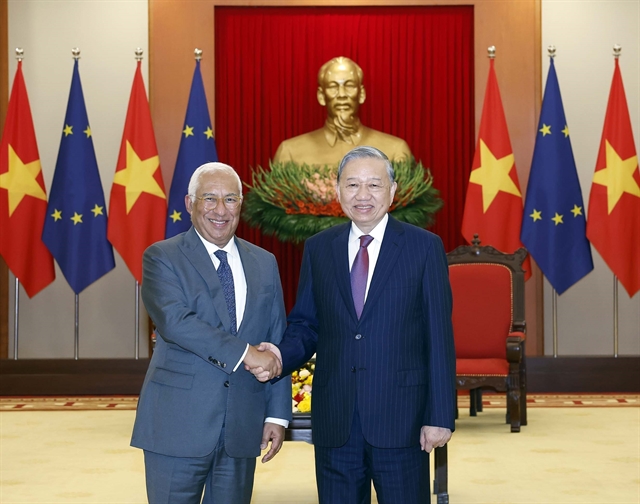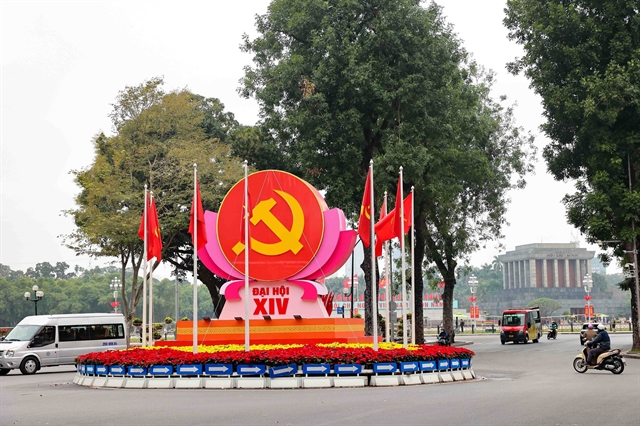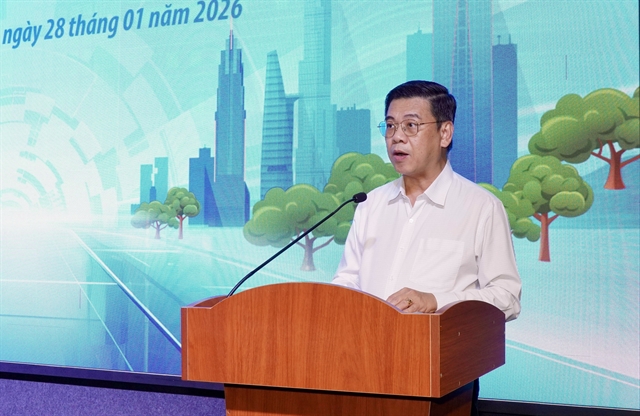 Society
Society
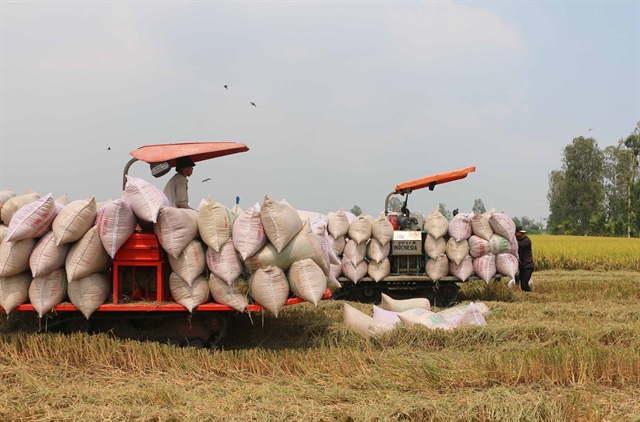
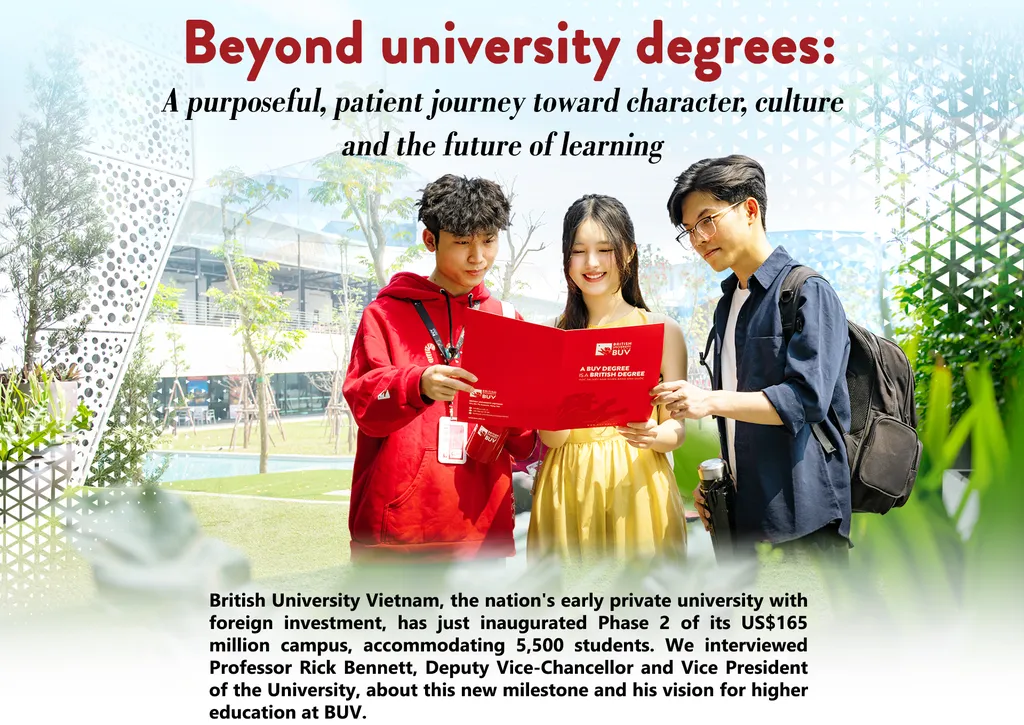 |
 |
Professor Rick Bennett, congratulations to British University Vietnam on completing Phase 2 of the campus expansion and achieving global EDGE green building certification. This year seems to be busy for BUV?
Our university is currently undergoing a significant scale up. Over the past few years, the university council has committed to investing in and expanding our campus. This expansion requires attracting more students to ensure the new facilities are fully utilised.
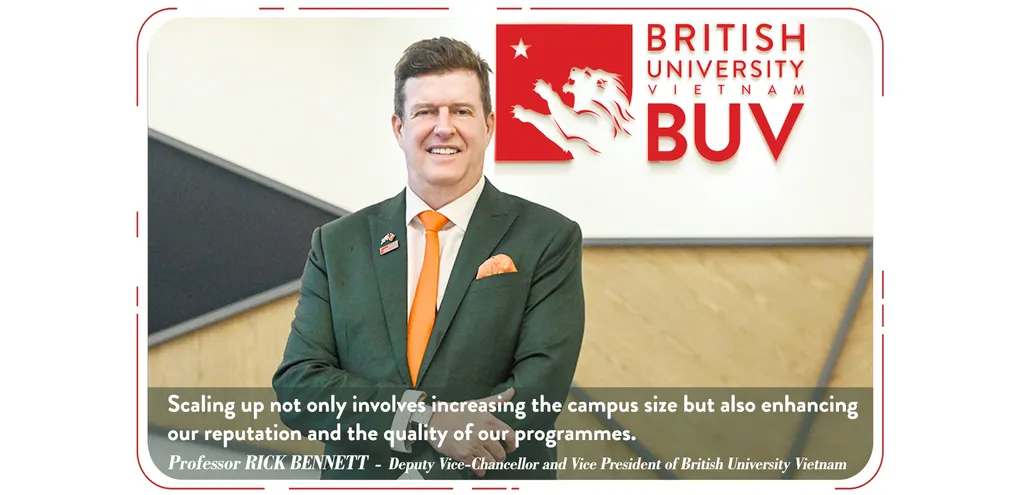 |
We completed the first phase of our campus in 2018. We are thrilled to announce the opening of a new, purpose-built section of the campus. This phase includes specialised facilities such as sound and filming studios, lecture theatres, computer labs, hospitality suites, etc, all designed to support our programmes.
At BUV, we believe that education should guide our direction, not just campus expansion and student recruitment. We've restructured our schools, creating four new ones, each led by experienced heads from Australia, Canada and the UK. These leaders bring strong industry experience and academic backgrounds, driving their schools' agendas forward.
Additionally, BUV has rebranded the university to enhance its perception across various regions under the new brand tagline, 'Home of the Lionhearted'.
Why lionhearted?
It perfectly aligns with the British heritage of our university. The lion, a powerful symbol in England's history, represents strength, resilience, care and power—qualities we aim to nurture in our students. This has been our goal since the founding of our university, but this is the first time it has been visually represented through such symbolic and evocative imagery. This icon sets us apart from other universities in the country.
As part of our rebranding, we've developed a new vision. To be viewed as the top international university in Việt Nam and the surrounding regions, including Myanmar, Laos, Cambodia and Thailand.
That's an ambitious goal. What are the key foundations that give you the confidence for this?
Let's break this down.
Why Việt Nam? What makes Việt Nam and education so intertwined?
I've been here for ten years and have seen first hand how highly education is valued in this country. Similar to other Asian nations like Korea and Singapore, where education has been the cornerstone of their growth, Việt Nam places a strong emphasis on education.
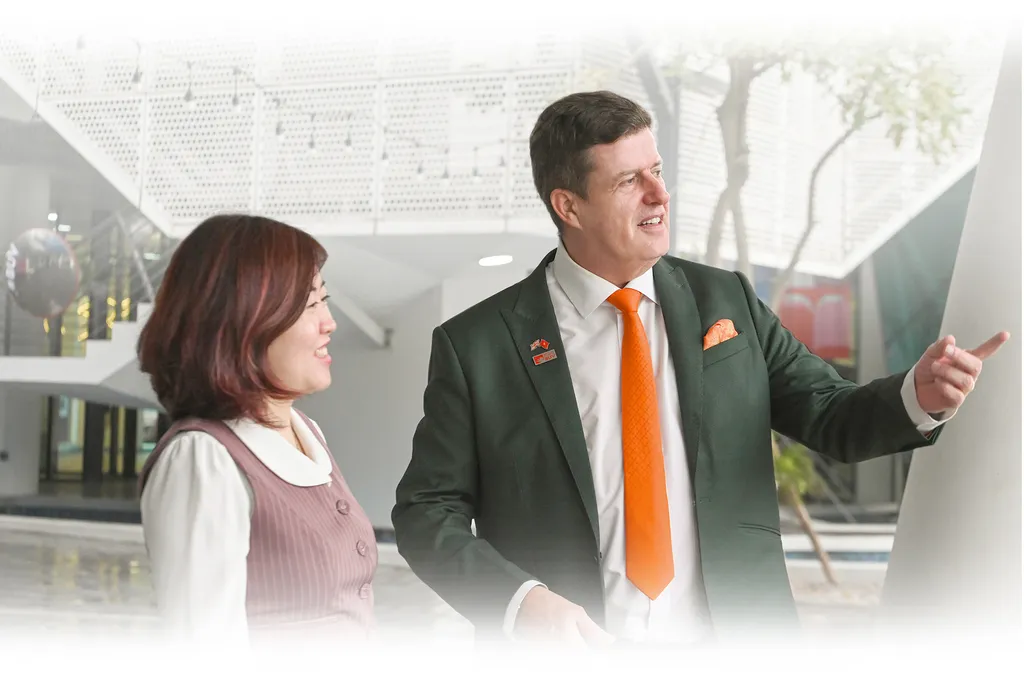 |
As an outsider, I've noticed that education is deeply ingrained in Vietnamese culture, even more so than in the UK or Australia, where I previously lived. In some countries, education is often taken for granted, but in Việt Nam, there's a profound appreciation for it, especially given the resilience the country has shown in rising from decades of war challenges to protect its territory and rebuilding over the past 50 years.
You have Vietnamese Teachers' Day on November 20, where teachers are highly celebrated. This cultural emphasis makes Việt Nam an ideal place for our university to grow. Our university council has ambitious plans to expand not only in Hà Nội and Ecopark, but across the entire country. You'll see many more education-based initiatives from us, which is very exciting.
 |
With all these significant investments, education must be a fruitful business?
It depends on what you consider 'fruitful' and for whom. Ideally, it's fruitful for our students and staff. Financially, you might be surprised to learn that our model isn't focused on making quick profits. Instead, all earnings have been reinvested back into the university. Over the past decade, not a single dollar has been taken out, everything is reinvested to ensure growth and quality.
This approach offers significant security, as the stakeholders are dedicated to long-term investment rather than seeking immediate returns. We've recently invested an additional $33 million in a new building, bringing the total capital investment to approximately $85 million, without expecting immediate financial gains. While we are closely monitored to ensure financial responsibility, our primary focus remains on growth, quality and contribution to Việt Nam.
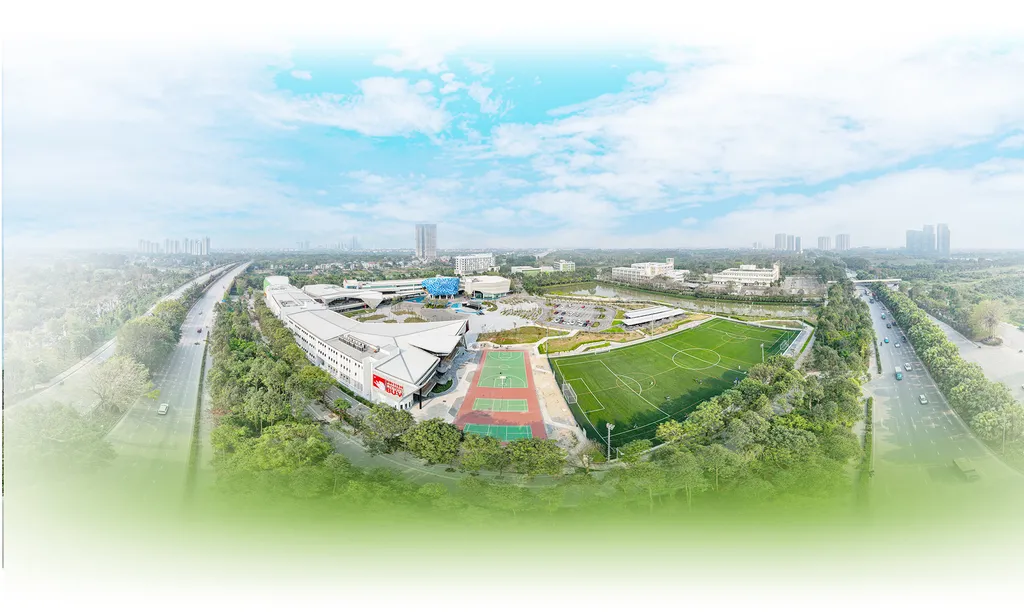 |
Achieving high standards, such as QS five-star accreditation, entails considerable expenses. These costs are essential to uphold the quality we strive for and include audits, evaluations and assessments necessary for accreditation.
Our faculty are entirely internationally qualified, with every teaching staff member holding at least a master's degree from an international university. Over 60% of our faculty members have PhDs.
Our facilities are specifically designed to meet the unique requirements of our programmes. For instance, our film and media production degree necessitates sound studios and film studios, while our hospitality and management programme requires kitchens, mock hotel rooms and reception areas.
Here's a key point I'd like to emphasise: We offer accredited British education. While several institutions in Việt Nam claim to provide British education, the crucial difference is that some are not accredited.
We've invested significant effort in obtaining QAA accreditation, which is challenging. We were the first in Việt Nam to achieve this. Additionally, we ensure that our accreditation is recognised by the Vietnamese government and the Ministry of Education and Training.
QAA came here, gained recognition from the Vietnamese Government, and accredited our entire university, not just our programmes. This rigorous process took about two years and must be renewed every two and a half years. We are extremely proud to offer accredited British education, making us the only institution in Việt Nam to do so.
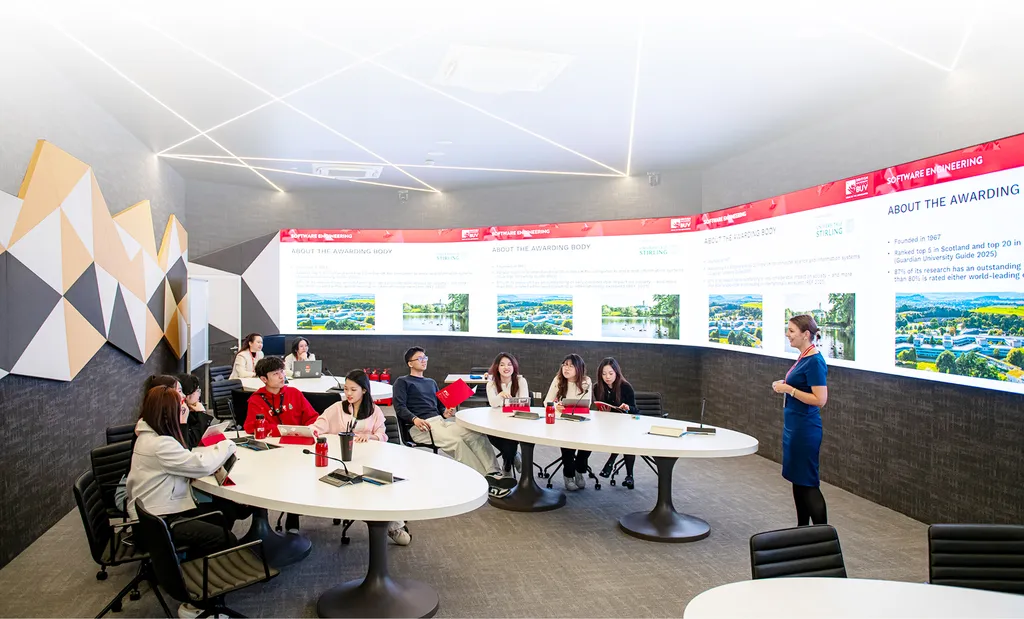 |
 |
What are the main benefits of British education?
British education is well-established and has a long history. While there are pros and cons to any long-standing system, British universities consistently rank highly in global rankings. Many British universities are in the top 100 worldwide and the UK has the Russell Group, akin to the Ivy League in the US, which adds to its strong reputation.
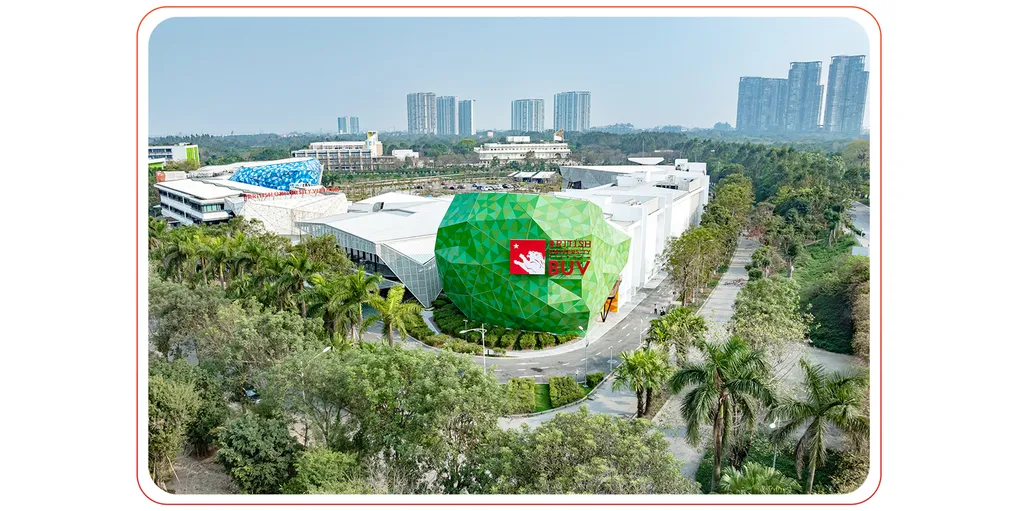 |
This historical prestige is complemented by a wide range of traditional subjects and innovative new areas. We aim to reflect this diversity through our programmes at The Business School and School of Computing & Innovative Technologies, which focus on cutting-edge developments, as well as our School of Communications & Creative Industries. We're also launching a new film and media production degree. Some degrees that are popular in the UK may not yet be as widely valued in Việt Nam, but we strive to bring that same level of quality and innovation here.
For example, we offer degrees in game programming, recognising the industry's rapid growth. In the UK, our partner university for gaming degrees ranks in the top five globally according to QS rankings. However, in Việt Nam, helping parents better understand the professional opportunities in gaming remains an important part of the journey. Many parents question whether it's a real job and worth investing. Yet, the rapid growth shows that it absolutely is.
We strive to be a university that offers innovative programmes, different from the norm. Each year, we carefully consider what new programmes to introduce, ensuring we stay ahead of future needs of education.
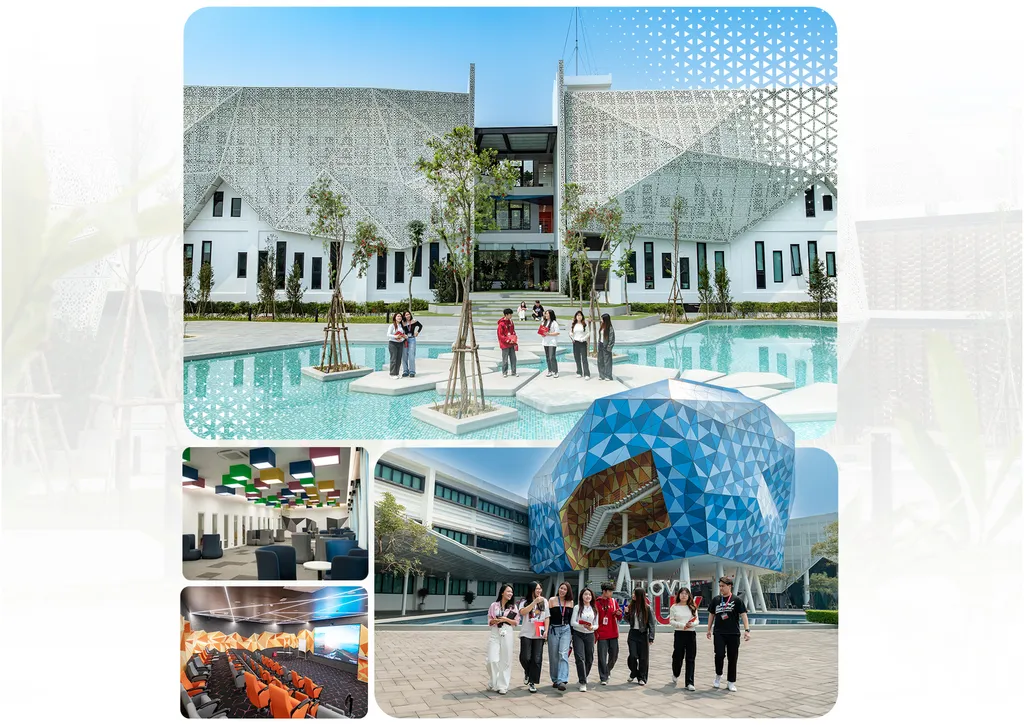 |
It's a risky endeavour. Let me give you a few examples. Our campus isn't a traditional building in the centre of Hà Nội, because we wanted to create a modern, open and technologically advanced campus that reflects our innovative approach to preparing students for the future of work. We hope visitors find it futuristic, just like the programmes we offer.
While we offer traditional degrees, we're introducing degrees in game design, film and media production, and considering programmes in environmental and sustainable business, as well as sports science. These fields are new to Việt Nam but successful elsewhere. The question is, are we ready for them here? The only way to find out is to take risks and introduce these programmes, even if they start with just a few students. Over time, as more students enrol and their successes become evident, these programmes will gain popularity.
So, I think British education is both traditional and innovative, offering flexibility and forward-thinking approaches. We aim to provide a unique sense of value and innovation you'll appreciate when studying here.
 |
How do you convince stakeholders that this slower, value-driven approach is not only viable but necessary?
You could call it a gamble or a risk, but the key question is whether it's worth taking. We're playing the long game, both financially and socially.
One of the most rewarding aspects of working here, especially from a strategic perspective, is collaborating with people who are morally invested in this country, not just financially. This commitment extends to our staff as well.
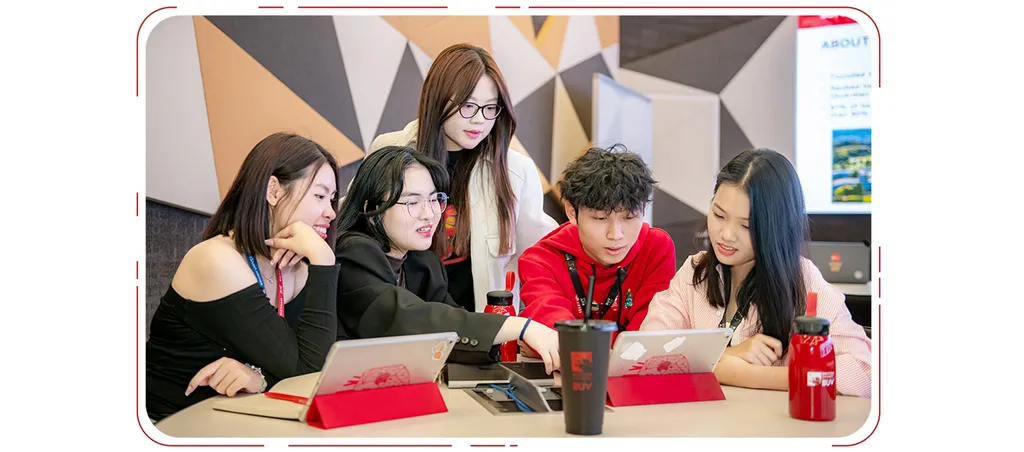 |
I recently had a meeting with some of our student recruitment members over coffee to commend them on their excellent work. They shared that their motivation isn't just about the money. Many of them are here because they want to contribute and ensure a quality university education for their children, some of whom are just in kindergarten. When you choose the very product you help create for your own children, it speaks volumes—not just about your commitment, but about your belief in its true value. Our business model emphasises quality and growth, and this approach is deeply reflected in the mindset of every individual across the organisation.
The role of a university goes beyond just providing degrees. If students only focus on academic work and leave without personal growth, they've missed out on half of their education. Universities should help students grow from teenagers into young adults, future trailblazers who make an impact. We want parents to see our graduates and think, 'That's what I want for my child'—confident, humble, interesting, educated, knowledgeable and happy individuals
We have a significant programme called PSG (Personal and Social Growth), which every student participates in, alongside their degree studies. Over three years, students engage in various activities such as community volunteering, sports events and peer support. When they graduate, they receive a record of their contributions, earning points and achieving levels from bronze to diamond. Higher levels open doors to job opportunities with companies.
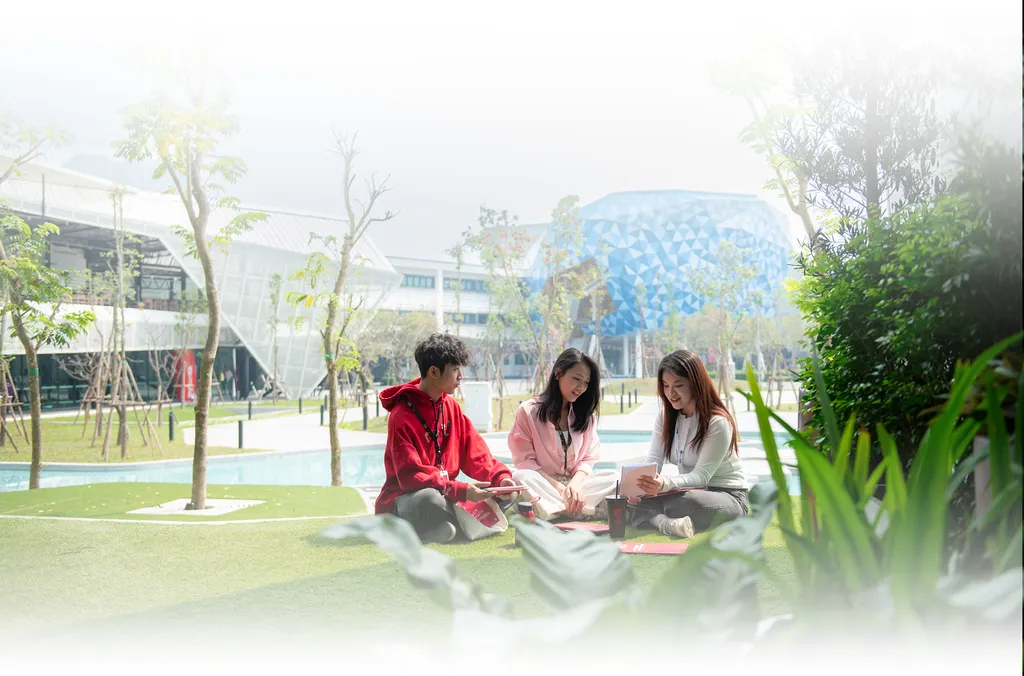 |
Our university's role extends beyond academics to include community and global contributions. We've invested heavily in creating a green campus, certified for its environmental responsibility, reflecting our commitment to sustainability.
We do this because the new generation expects it. Previous generations, including mine, were not as environmentally responsible, leading to many of the current issues. Now, students are concerned about their environment, both locally and globally and want it to be clean and sustainable for the future.
Ecopark is an ideal location for our green campus, situated in a neighbourhood focused on environmental friendliness. As more Vietnamese students demand sustainability, our campus will attract those who value a responsible and forward-thinking university.
 |
So higher education is a holistic journey. How does BUV aim for this?
I attended a leader talk in the HR industry, which included seasoned HR professionals and emerging leaders. It was fascinating to hear them discuss the evolving expectations for candidates.
We talked about a concept called A.S.K., which stands for Attitude, Skills and Knowledge. Interestingly, while knowledge—gained through your degree—is essential, it’s only one part of the bigger picture. Employers are also looking for skills like teamwork, problem-solving and creative thinking. So, having a degree is great, but you also need to know how to work effectively in a company and tackle challenges creatively.
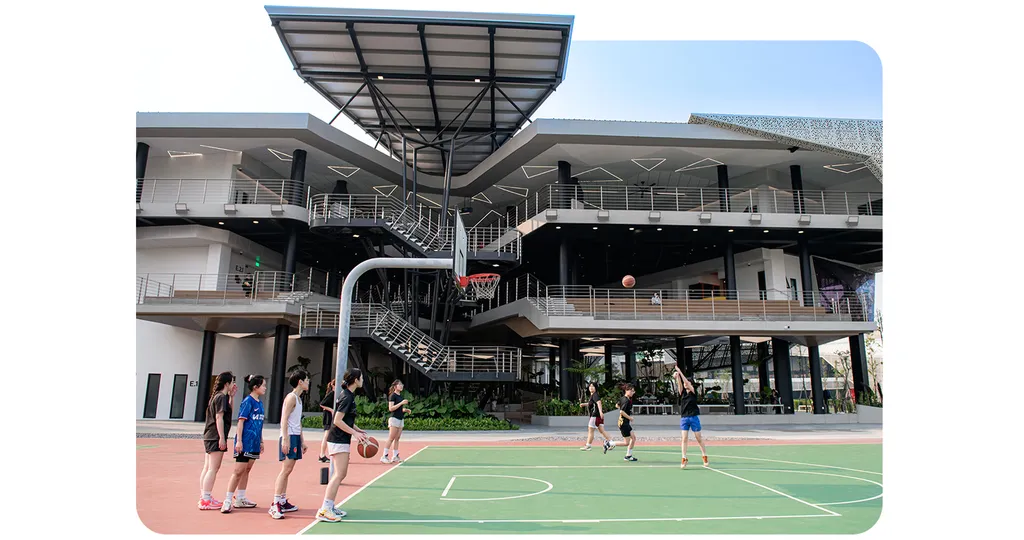 |
The first thing you need is to be a good person with a positive attitude. People don’t enjoy working with someone rude or difficult. A good attitude means thinking about others, caring about your surroundings and being someone others enjoy being around. Attitude, skills and knowledge are all equally important and this concept resonated with me.
In addition to offering degrees, we provide a variety of extracurricular activities, from sports events to cheerleading, music, and more serious pursuits like debating societies and charity activities. We have over 40 or 50 student-generated clubs and societies where like-minded individuals come together. The student experience is very important to us.
 |
What message do you want to convey to your future students?
I delivered the welcome remarks at our recent Experience Day. I did not claim that we are the best or superior to others. It is up to the audience—whether they are parents, students—to make up their own minds. In our vision, we do not assert that we are the number one university in Việt Nam. Instead, we aim to be ‘viewed’, ‘perceived’ that way. It is important for others to hold us in high regard, rather than us making that claim ourselves. So, when I give these welcome messages, I simply say, "Welcome to us. This is who we are. Come and explore. Experience BUV."
This is what we offer, quality British education. I always mention that we are accredited, and all our faculty are internationally qualified, whether international expats or Vietnamese. We have a 5-star campus that you can experience every day. We seek individuals who are lion-hearted—strong, interesting, curious, innovative and eager to grow.
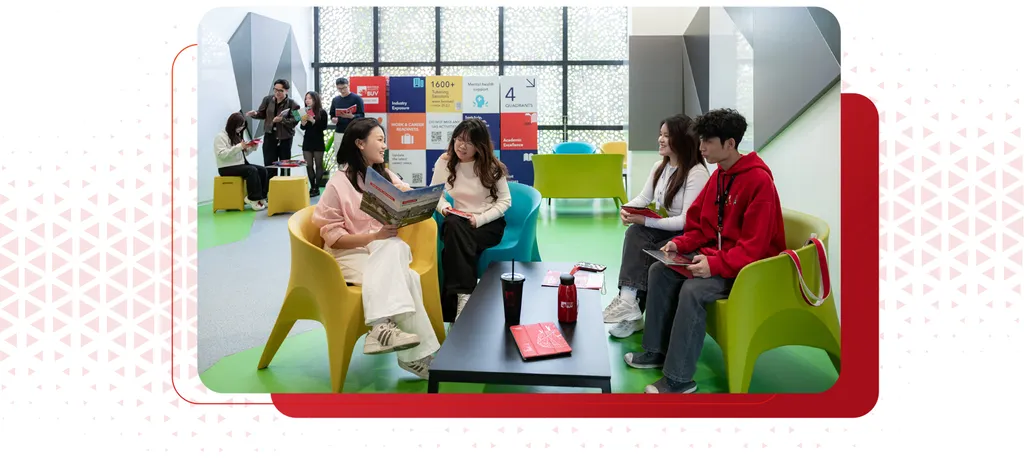 |
We uphold a series of values, with the foremost being kindness and respect. In today's world, with the influence of social media, bullying is a significant concern. We have a zero-tolerance policy for such behaviour. While we can't control social platforms like Facebook, Instagram and or TikTok, we surely can influence the behaviour of our students on these platforms, ensuring they engage positively.
Additionally, we emphasise sustainability and responsibility. We take responsibility for our neighbourhood and the environment, and we manage our finances prudently, valuing the resources provided by our parents and avoiding wastefulness. We maintain strict oversight to prevent corruption and bribery, which can be challenging in certain industries. Furthermore, we focus on collaboration and innovation.
The final value is lifelong learning. Even after completing your three years here, we want to offer a variety of opportunities for you to keep returning and growing. For instance, I had three or four jobs throughout my life. Nowadays, graduates are expected to have between 20 - 30 jobs in their lifetime, due to rapid changes in the job market. This means they will need to retrain and adapt continually. Lifelong learning is more than just attending university for three years. It's about staying curious and educated. We aim to provide opportunities not only for alumni, but also for individuals in their 20s, 30s, 40s, and beyond, to keep coming back and learning new things.
Thank you, Professor Bennett, for this interesting conversation
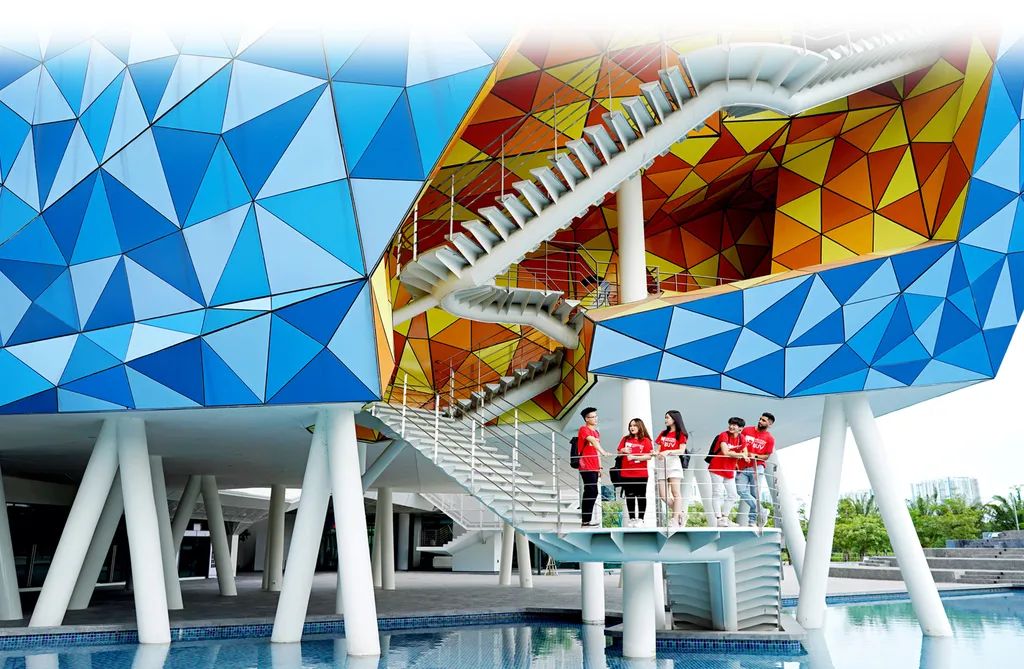 |

.jpg)

